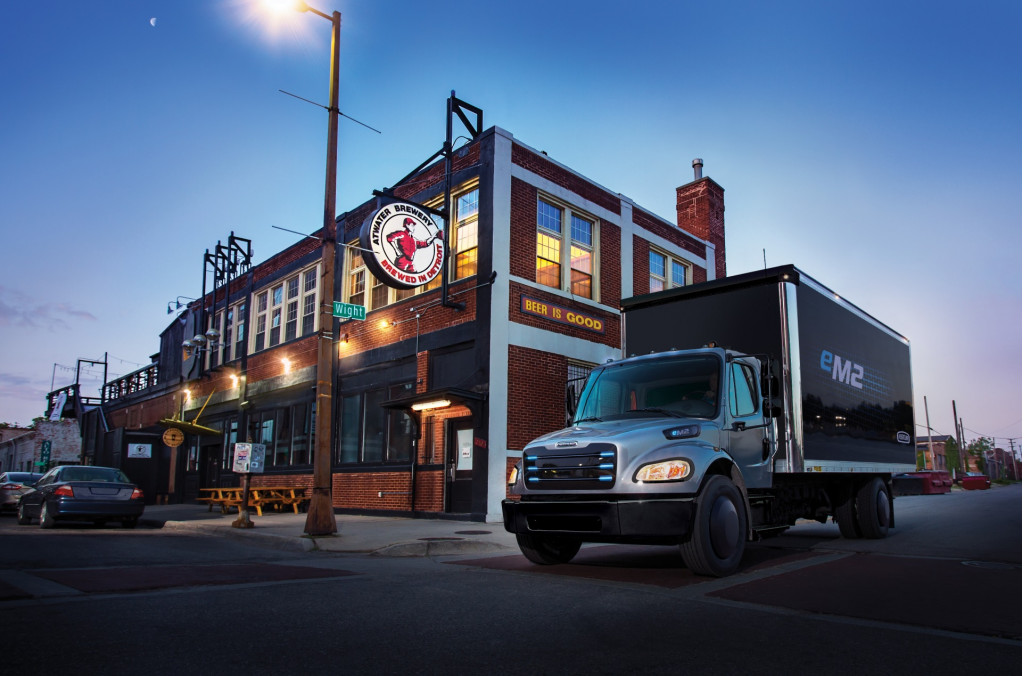Electric trucks from Daimler Trucks' Freightliner division have racked up one million miles in real-world use with fleet operators, and now the company is ready to discuss what it has learned.
Over 40 Freightliner eCascadia semi trucks and Freightliner eM2 box trucks have been tested by about 50 customers in real commercial fleet operations, the truck maker said in a press release.
Divided into two test fleets, they've been rotating among different operators in the United States and Canada, including trucking companies like J.B. Hunt, the corporate fleets of Costco and UPS, and utility Southern California Edison, Freightliner said.

Freightliner eM2 electric truck
After collecting driver feedback and analyzing data from the vehicles, one thing that stood out was the importance of regenerative braking to maximize range, according to Freightliner. Across the fleets, the average energy recuperation ratio was 20% to 25%, with some drivers achieving up to 30%, according to the company.
Real-world testing also "validated and reaffirmed many of the expected benefits of electric trucking from reduced driver fatigue to minimal noise and vibration," the company said.
Freightliner announced its initial test fleet in 2018 with trucks running shorter drayage and regional-haul routes with Penske Truck Leasing and NFI. A second fleet with additional vehicles was added in 2020. Order books for production trucks are now open, with the first customer deliveries scheduled for 2022.

Freightliner eCascadia electric commercial truck
Parent Daimler also constructed the first publicly accessible station intended for truck charging and ready for the upcoming Megawatt Charging System (MCS). Located in Portland, Oregon, it was unveiled earlier this year.
The Oregon charging station could be the first step toward a network of stations for commercial vehicles. Utilities and other stakeholders have allied to create such a charging network for commercial trucks on the West Coast, echoing the previous West Coast Electric Highway initiative for electric-car charging.
California is mandating that some commercial trucks go electric starting in 2024, and a coalition of 15 states seeks to make all heavy-duty commercial trucks electric by 2050. Sheer economics will likely make shorter-distance trucks fully electric long before then.












